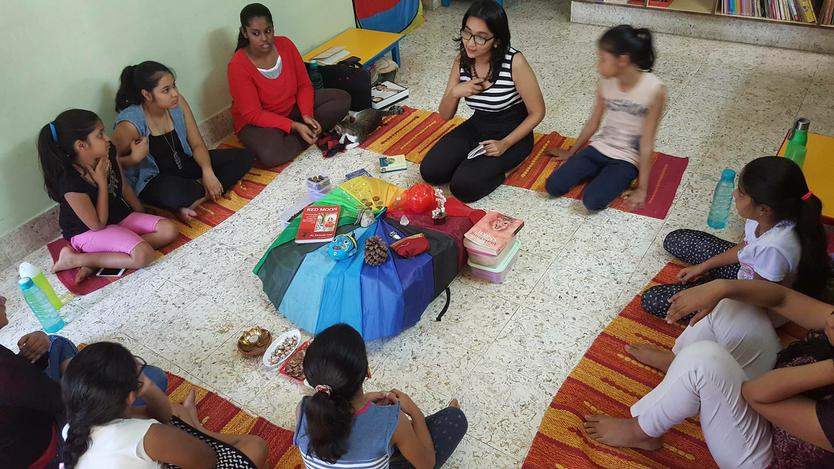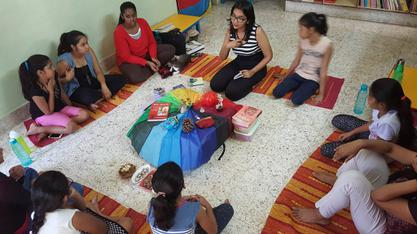Death Cafe in a primary school
Posted by Sneha rooh

What happens when children sit in a death cafe? what happens when their learning companions are with them and are exploring the emotions aroud death with them? I got the opportunity to facilitate this important Death Cafe at an alternative learning space in the city of Hyderabad called Vision Rainbow, they employ novel method to facilitate learning for the children; When I proposed the idea to Nausheen, one of the founders of the place who had attended the Death Cafe meet the previous month, she simply accepted saying, "lets see what they have to say.". Palliative department in the institution I worked had severe reservations about talking about death to children and the research I proposed was kept limited to adults.It is not an uncommon occurance as we adults project our discomfort to the children. We as adults often speak to children as if we are providing information, there are very few times where we operate from trust of their knowing, their awareness. This is another reason we shy away from talking about Death to them.I have heard stories of children being asked to be taken away from school even as they are receiving chemo because the teachers didnt know how to talk to other children about it, this often deprived the child an important part of life which the ailment has already altered beyond imagination. We employed talking American talking stick model for this death cafe and had one parent and two learning companions in the circle along with 9 children who ranged from 4-16 years of age.The questions included questions like," Why dont adults talk openly about death?"."why do we feel sad when people die?". "What all do parents feel or siblings feel when children die?" The responses expanded my heart because of the simplicity. Each child had her/his way to be in the space, two played with books as they yelled out laconic answers to the questions picked up, many responded with stories from their lives and there were many times that the talking bowl (filled with questions) was passed without being answered. One girl spoke about how her grandfathers death always made her mother unhappy and thats why she thought that talking about death is not a welcome thing, Another boy, usually a listener responded talking about a child born before him which his parents had lost. When responding to what they thought happened after people die, one girl whose mother is an alternative medicine practitioner spoke matter of factly saying, "...after we die, we become angels and form a group to decide what to learn, then we say, yes let's learn about this and then jump to our mothers womb." What was interesting was the discussion preceeding the event, when we announced the event, the first reactions of many, especially the teens was of rejection, only one of them showed up. It was clear they were getting closer to being adults. Children are thinking, feeling beings with developed I and it is a shame that we need to be reminded of that. Along wih giving them accurate and correct information when required with respect to death instead of Euphemisms we also need to hear from them and there is a lot we could learn from the truthfulness and simplicity in expression they embody.

